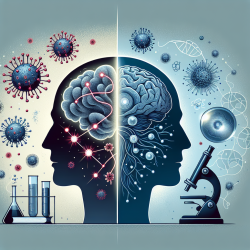Understanding the Link Between COVID-19 and Strokes: What Practitioners Need to Know
The COVID-19 pandemic has brought numerous challenges and unexpected consequences, one of which is the potential link between SARS-CoV-2 infection and acute ischemic strokes (AIS). Recent research from the Multinational COVID-19 Stroke Study Group has shed light on this association, revealing that while some strokes may be linked to COVID-19, others are not directly caused by the virus. This blog explores the study's findings and offers insights for practitioners looking to enhance their skills and understanding of this complex issue.
Key Findings from the Study
The study analyzed data from 323 AIS patients across 71 centers in 17 countries, along with 145 patients reported in the literature. The researchers used unsupervised machine learning algorithms to identify distinct subgroups of patients based on comorbidities and stroke characteristics. Here are some of the key findings:
- A subgroup of young, predominantly male patients with no or few comorbidities experienced embolic-appearing strokes. These patients were more than six years younger than other subgroups and had a higher risk of large vessel occlusions.
- Two other subgroups were identified: one with large-artery atherosclerosis and another with cardioembolic strokes, both showing consistent comorbidity and imaging patterns.
- Ischemic heart disease, atrial fibrillation, and active neoplasm were significantly associated with cardioembolic stroke.
Implications for Practitioners
For practitioners, understanding these findings is crucial for improving patient care and outcomes. Here are some ways to implement the study's outcomes in practice:
- Early Identification: Be vigilant in identifying young patients with COVID-19 who may be at risk of stroke, even if they lack traditional risk factors.
- Comorbidity Assessment: Conduct thorough assessments of patients' comorbidities to determine their risk profile and tailor treatment plans accordingly.
- Collaborative Approach: Work closely with neurologists and other specialists to ensure comprehensive care for stroke patients with COVID-19.
Encouraging Further Research
While this study provides valuable insights, it also highlights the need for further research to fully understand the relationship between COVID-19 and strokes. Practitioners are encouraged to stay informed about the latest developments and consider participating in research efforts to advance knowledge in this area.
To read the original research paper, please follow this link: SARS-CoV-2 Is a Culprit for Some, but Not All Acute Ischemic Strokes: A Report from the Multinational COVID-19 Stroke Study Group.










